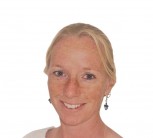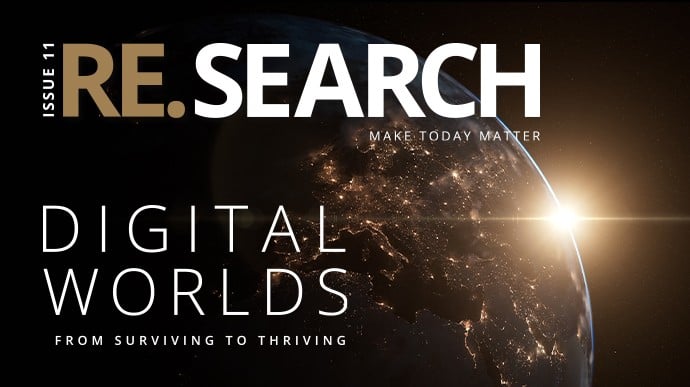The Whale Unit at the University of Pretoria’s Mammal Research Institute (MRI) will be conducting this year’s aerial survey of southern right whales from 28 September to mid-October. This is the 41st annual southern right whale photo-identification aerial survey, making it one of the longest-running datasets on any marine mammal worldwide.
Whale Unit: Mammal Research Institute
September 2, 2020

Dr Els Vermeulen has been a researcher at the University of Pretoria (UP) since her postdoctoral appointment in 2015. A Belgian national, she did her undergraduate studies at the University of Antwerp.
In 2017, she took the reins as research manager of the Whale Unit at UP. The unit is part of the University’s renowned Mammal Research Institute (MRI) and is an internationally established whale and dolphin research hub. “Considering the unit’s extensive knowledge base, I feel fortunate to be able to lead its work forward,” Dr Vermeulen says.
The Whale Unit was established in 1985 and has become a globally recognised leader in cetacean (whales, dolphins and porpoises) sciences. Researchers there investigate the ecology, population dynamics and behaviour of cetaceans from southern African waters into the Southern Ocean, with the principal objective of providing knowledge that will promote their conservation.
“The Whale Unit has a database on whales and dolphins that spans over 50 years,” Dr Vermeulen says. “These long-term databases on large mammal species are unique in the world, and provide a critical tool to study long processes such as climate change and its effect on wildlife. Making use of these databases ensures that they continue to grow, and allows me to assist in gaining a better understanding of anthropogenic impacts on the marine environment.”
Over the past 36 years, the unit has built a wealth of expertise, considerable long-term intellectual property and well-established knowledge bases, making it the most established cetacean research group in Africa. Being able to continue with this legacy gives researchers at the unit the opportunity to make a significant contribution to whale and dolphin conservation and management in a broad geographical region.
In terms of cross-faculty research, Dr Vermeulen collaborates with a UP genetics laboratory headed by Prof Paulette Bloomer, as well as the Department of Geography, Geoinformatics and Meteorology.
She regards the Whale Unit’s most recent research – which has shown the effects of climate change on the health, reproductive success and migration patterns of South Africa’s southern right whales – as a research milestone. Much of this research has been highlighted on the Research Matters website.
Dr Vermeulen has always been inspired by established academics in marine mammal research, as it is a highly competitive field and a difficult one to pursue
She looks up to Prof André Ganswindt, her line manager and Head of the MRI. “I admire the way he manages the MRI, creates a family feeling within the group, finds balance between work and personal life, and the way he provides guidance to students and other academics like myself. He is an effective and extremely qualified professional, yet a gentle, patient, down-to-earth person with whom it is a pleasure to work and collaborate with.”
Dr Vermeulen hopes to secure a permanent appointment within the Whale Unit and be able to grow the unit to the next level.
Her advice to school learners or undergraduates who are interested in her field is to follow their dreams. “Live the life you have imagined – in the end, it is not what you want, but how much you want it. Also remember, it is not always what you know, but who you know. So never cease to be a friendly, gentle person. It will stand you in good stead.”
Outside of work, she says she loves spending time outdoors with her two little children and her dogs. “Nothing brings more joy to my heart than seeing them play in nature.”
 Story
Story
University of Pretoria (UP) researchers have found that the antioxidant content of certain types of tea can be likened to that found in recommended portions of fruit and vegetables.
 Infographic
Infographic
Half a cup of black tea, oolong tea or green tea contained the same amount of antioxidants with radical scavenging capabilities (RSC) as that of a 200mg vitamin C tablet.
 Story
Story
The latest issue of the University of Pretoria’s award-winning RE.SEARCH magazine is available now and reflects a shift towards both a fresher design and outlook. This edition is curated under the theme ‘Digital’, and offers a glimpse into some of the fascinating research we’re doing at UP to drive digital leadership and innovation.
Copyright © University of Pretoria 2025. All rights reserved.
Get Social With Us
Download the UP Mobile App